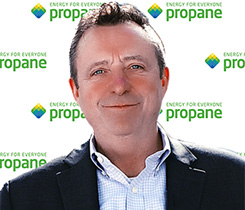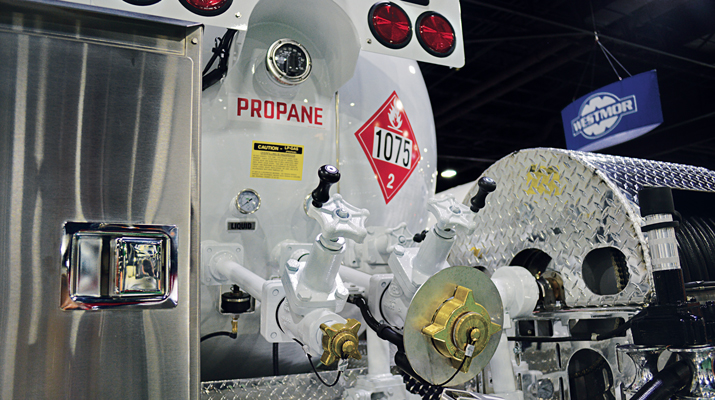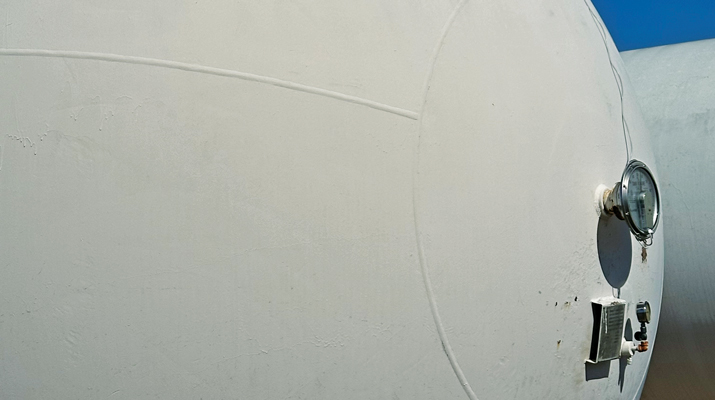5 LP Gas Growth Summit takeaways
The LP Gas Growth Summit brought retailers together from 12 states, yet those who attended the event in Orlando, Fla., expressed many of the same interests and concerns related to the propane industry. Here are five areas that caught our attention in our discussions with retailers.
1. Retailers seem convinced propane autogas is the future.
Most retailers haven’t incorporated autogas into their companies on a drastic level. But the retailers who attended the LP Gas Growth Summit seem to understand that autogas is the industry’s premier growth opportunity.
Tim Lease, energy division manager at Premier Cooperative in Mount Horeb, Wis., has prioritized autogas. Lease says the residential heating market used to be the top driver of growth at Premier Cooperative, which purchased a member of the Alliance AutoGas network (Charter Fuels) more than a year ago.
“Autogas is going to increase our overall gallons, and it’s going to take out the valley we see in the summer months,” Lease says.
Mark Zimora, director of U.S. operations at Energy Distribution Partners, based in Chicago, also sees a great opportunity in autogas.
“We have our eye on that,” he says. “There are still some developments that need to happen. We need mechanics in the field to repair the motors and do the maintenance work, but it’s a growing technology.”
Todd Lawrence, general manager at Farmers Cooperative in Live Oak, Fla., is excited about autogas’ possibilities, as well.
“I hope autogas continues on a positive path and that a large part of our gallons will be toward fleets and other autogas opportunities,” he says.
2. Irrigation engine-related gallon consumption is a growth opportunity, but the industry must educate farmers about the engines and their benefits.
According to Bill Moore, alternative fuel sales manager at Conger LP Gas in Tifton, Ga., a number of farmers that use propane regularly simply aren’t aware of the new wave of propane irrigation engine technology.
“We’ve spent our last three years informing farmers that they’re available,” says Moore, adding that Conger LP Gas has increased its annual gallon sales related to irrigation engines to 250,000 over the past few years. “As diesel engines become more expensive and as Tier 4 diesel engines become required, I see the growth potentially going up exponentially.”
Moore says he’s had some success connecting with farmers through local meetings and getting irrigation dealers involved.
Establishing good relationships with farmers is essential for a number of retailers, adds Billy McPhillips, co-owner of Country Side Propane in Plant City, Fla., and Bradenton Propane in Bradenton, Fla.
“We’ve got to get to know them because we do a lot with them,” McPhillips says. “They’ve got water heating for their migrant workers, forklifts for their businesses; they heat to wash their fruits. I think we need to get in their associations and get in their industry. You’ve got to show them how they can use propane.”
Check out these videos from the LP Gas Growth Summit to see what attendees had to say about other aspects of the propane industry.
3. Natural gas expansion is still a significant threat to retail propane businesses.
Several retailers at the LP Gas Growth Summit expressed concerns about natural gas infringing on their sales territories. Zimora refers to natural gas as propane’s “arch-nemesis.”
“Natural gas has been and will continue to be our enemy,” he says. “They’re subsidizing the growth in their pipelines, putting money on their existing rate holders. It’s an unfair advantage but one that’s been there for a while. Combating natural gas is probably at the forefront as a threat.”
Mike Hayden, propane division manager at Co-Alliance LLP in Avon, Ind., says natural gas expansion is the greatest threat to his retail propane company.
“That sprawl into the rural area in Indiana has really affected our business,” he says.
Kara Tucker, who handles business development at Koppy’s Propane in Williamstown, Pa., says her company has felt the effects of natural gas expansion in Pennsylvania.
“We’ve lost a big duck farm that used propane to heat its buildings,” she says. “We had a 30,000-gallon tank at their main plant.”
Matt Parsch, general manager of operations at Al Parsch Oil & Propane in Imlay City, Mich., echoes some of these same sentiments about natural gas expansion.
“We could lose everything,” Parsch says. “Ninety percent of our business is residential, and probably 80 percent of that is propane.”
4. Retailers are growing gallons by working with homebuilders – especially in Florida.
Five Florida-based retailers attended the LP Gas Growth Summit. At least two discussed the importance of working alongside homebuilders in their market areas.
“The builders are the bread and butter for us on the residential side,” says Randy Sams, owner of Sams Gas in Orlando, Fla. “It spawns growth from there when a neighbor has a tankless water heater.”
Homebuilders are also key partners with South Florida Gas in Fort Myers, Fla.
“We can’t keep up with [homebuilding],” says Terry Fisher, marketing director at South Florida Gas. “We have a lot of subcontractors who work with us. They’re doing work with piping companies. Everybody is busy as can be.”
Homebuilders aren’t the only group that can help retailers grow gallons in the residential sector. Tucker says her company has had some success teaming up with heating, ventilating and air-conditioning (HVAC) companies.
“They refer business to us and vice versa,” Tucker says.
5. A number of new, viable propane technologies are in place. Now, retailers must incorporate them into their businesses.
Brian Powers, president of Indiantown Gas Co. in Indiantown, Fla., summarizes the tasks ahead for retailers best among LP Gas Growth Summit attendees, saying the reinvention of the industry has occurred.
“Now, we have to apply the inventions we’ve come up with,” he says.
Take tankless water heaters as an example, he says.
“I still think we could do a better job getting tankless water heaters into the marketplace, [especially] when there are so many things you can do with those,” Powers says.
Sams echoes Powers’ sentiment about tankless water heaters as an opportunity.
“I’ve heard from a lot of dealers over the years how the tankless water heater [offers] a decreased load,” Sams says. “But there are people calling wanting those now. You’ve got somebody else to market those to.”
Photo: LP Gas Magazine

















